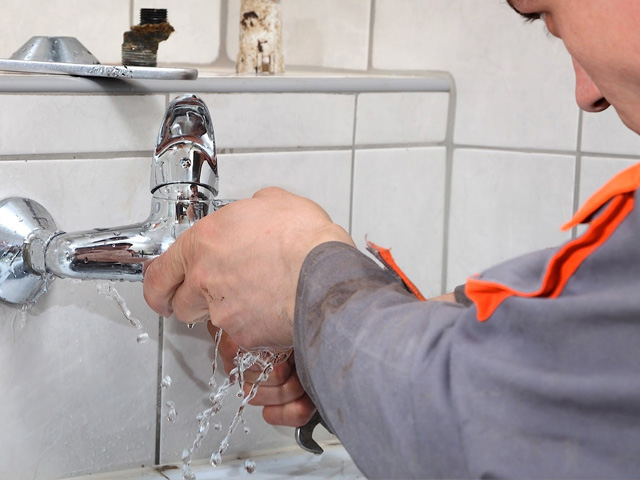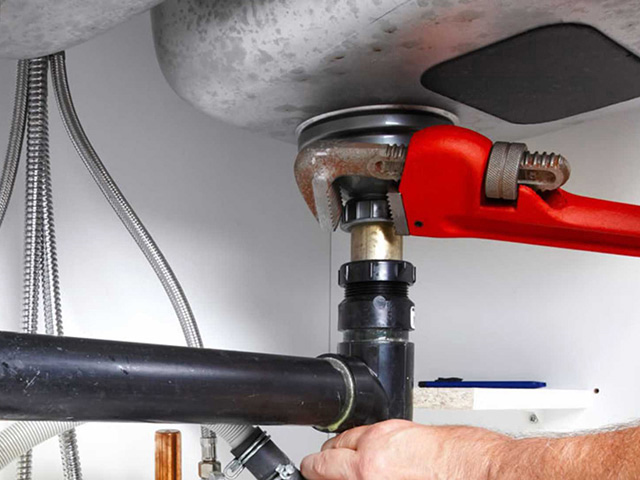
When it comes to home renovations, plumbing is often an overlooked but crucial component of the process. Whether you’re updating a single bathroom or overhauling your entire kitchen and laundry, the plumbing systems you install can make a significant difference in the functionality, efficiency, and longevity of your home. Incorporating modern plumbing solutions into your renovation project not only enhances your home’s comfort and value but also contributes to sustainability and energy efficiency. Here’s a comprehensive look at the modern plumbing solutions you should consider when undertaking a renovation.
Understanding the Importance of Plumbing in Renovations
Plumbing systems do much more than carry water and waste in and out of your home. They ensure that you have clean, safe water for daily tasks such as cooking, cleaning, and bathing. A well-designed plumbing system can improve water pressure, prevent leaks, reduce water consumption, and even provide advanced technology for more convenience. Given how much we depend on these systems, it’s essential to upgrade your plumbing during a renovation to meet modern standards and ensure long-term functionality. For expert plumbing services, including upgrades and maintenance, visit https://hi-techplumbingandair.com/plumbing-boca-raton/.
1. Water Efficiency
Water conservation has become a significant focus in modern plumbing, driven by both environmental concerns and the desire to reduce utility costs. When renovating, it’s the perfect opportunity to install water-efficient fixtures and systems that can drastically reduce water waste.
- Low-flow Fixtures: Low-flow faucets, showerheads, and toilets use significantly less water without compromising on performance. These fixtures are designed to provide an adequate water flow for everyday needs while using up to 50% less water than standard fixtures.
- Dual-Flush Toilets: These toilets offer two flushing options: one for liquid waste and one for solid waste. This design allows homeowners to use less water for smaller flushes, contributing to significant water savings over time.
- Smart Irrigation Systems: If your renovation involves outdoor spaces, consider upgrading your irrigation system to a smart one. These systems monitor weather conditions and adjust water usage based on the moisture level of the soil, avoiding over-watering and promoting water conservation.
2. Tankless Water Heaters
Traditional water heaters can take up a lot of space and continue to consume energy even when not in use. The solution? Tankless water heaters, also known as on-demand water heaters. These units only heat water when needed, providing an endless supply of hot water while avoiding the energy waste associated with keeping a large tank of water hot at all times.
Incorporating a tankless water heater into your renovation can help reduce energy costs and provide more space for other uses. Plus, these heaters are often more durable, lasting up to 20 years or more compared to traditional models. Their compact size makes them ideal for smaller homes or apartments, where space is limited.
3. PEX Piping for Flexibility and Durability
One of the most significant advances in plumbing materials is the introduction of PEX (cross-linked polyethylene) piping. Unlike traditional copper or PVC pipes, PEX piping is flexible, durable, and resistant to corrosion and freezing. Its flexibility makes installation much easier, as it can be bent to fit around corners and obstacles without the need for additional fittings or joints.
PEX piping is also much more cost-effective than copper, making it an ideal choice for renovations on a budget. It can be used for both hot and cold water supply lines and is resistant to scale buildup, which can cause clogs and reduce water flow over time. If you’re renovating an older home with outdated plumbing, replacing the old pipes with PEX is an excellent investment in long-term plumbing health.
4. Smart Plumbing Technology
As with many other areas of home improvement, technology has begun to revolutionize the plumbing industry. Smart plumbing devices allow homeowners to monitor and control their plumbing systems from their smartphones, providing enhanced convenience and efficiency.
- Leak Detectors: Smart leak detectors can alert you to any leaks or potential plumbing issues before they turn into costly problems. These sensors can be placed in areas prone to leaks, such as under sinks, behind toilets, or near water heaters. If a leak is detected, the system will notify you, allowing you to take action before damage occurs.
- Smart Faucets and Showers: Modern faucets and showerheads come with touchless technology, which makes it easier to control water flow and temperature. Some models can be programmed to remember preferred settings, and others feature water-saving mechanisms that adjust water flow based on usage patterns.
- Automatic Shut-off Valves: Smart shut-off valves can detect unusual water usage patterns, such as a burst pipe, and automatically shut off the water supply to prevent flooding and damage to your home. These devices provide peace of mind, especially if you’re away from home for extended periods.
5. Advanced Drainage Solutions
Clogged drains are a common plumbing issue that can cause significant disruption in daily life. Modern plumbing solutions offer more effective and efficient drainage systems that can prevent blockages and reduce maintenance.
- Hydro-Jetting: Hydro-jetting is a modern, high-pressure cleaning technique that uses water to clear out debris, grease, and mineral buildup from pipes. This method is particularly effective in removing tough blockages without causing damage to the pipes. If you’re renovating an older home with old drainage systems, consider using hydro-jetting to ensure your pipes are thoroughly cleaned and free of obstructions.
- Trenchless Technology: If you need to replace or repair underground pipes, trenchless technology allows for minimal disruption to your landscaping and property. This method involves digging small access points to pull new pipes through the old ones, reducing the need for extensive digging and damage to the surrounding area.

6. Upgraded Ventilation and Air Circulation
Plumbing is not just about water and waste management—it also involves maintaining a healthy environment within your home. Proper ventilation is essential for controlling humidity levels, preventing mold growth, and ensuring air circulation. Modern plumbing systems include advancements in ventilation design that can improve indoor air quality.
- Bathroom and Kitchen Ventilation: A proper exhaust fan in the bathroom can prevent moisture buildup, which can lead to mold and mildew. During renovations, consider upgrading to more energy-efficient models with built-in humidity sensors that automatically turn on when moisture levels rise. Similarly, kitchen range hoods can help eliminate cooking odors and excess moisture, preventing damage to cabinetry and walls.
7. Eco-Friendly Plumbing Solutions
Sustainability is a growing trend in home renovations, and plumbing plays an important role in this movement. In addition to water-efficient fixtures, there are other eco-friendly plumbing solutions you can incorporate.
- Greywater Systems: These systems collect and filter wastewater from baths, sinks, and laundry to be reused for irrigation or flushing toilets. Installing a greywater system during a renovation can reduce your household’s overall water consumption and lower utility bills.
- Solar Water Heating Systems: For those looking to reduce their carbon footprint, solar water heaters harness the power of the sun to heat water. While these systems can be an investment, they offer long-term energy savings and are an excellent way to make your home more sustainable.
Conclusion
Incorporating modern plumbing solutions into your renovation not only enhances the functionality and aesthetics of your home but also provides long-term benefits in terms of energy efficiency, sustainability, and convenience. From water-efficient fixtures to advanced technology and eco-friendly systems, today’s plumbing options allow you to create a home that is not only comfortable but also responsible and future-ready. By taking the time to upgrade your plumbing during a renovation, you’ll not only improve your quality of life but also increase your property’s value and ensure that your home’s plumbing systems are built to last for years to come.
